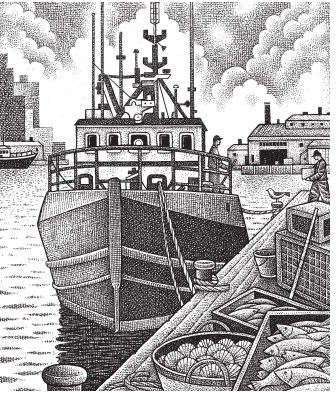See also Beth Humstone’s “Eating on the Go: Mobile Food Trucks”
Read an excerpt from this article below. You can download the full article by using the link at the end of the excerpt.
While most of us don’t consider ourselves food planners, think about the ways food affects what we do every day:
• Healthy food is essential for preventing obesity and diabetes, and helping kids do well in school.
• Urban agriculture is an important tool for making our communities more resilient.
• Restaurants and markets can provide a vital source of income for new immigrants and the opportunity to build wealth.
• Aquaculture (seafood farming) and agriculture can offer good, working-class jobs in many cities and towns.
Most importantly, food is an important part of any local economy.
In the following pages, we’ll be telling you about some exciting and effective initiatives in the Boston area that highlight the connection between local planning and food, specifically for the purpose of developing a more diverse, dynamic local economy. While Boston will be our focus, other towns, cities, and metropolitan areas across the country are embarking on comparable initiatives. We’ve included strategies for thinking about how you can take the lessons from Boston to your own community.

Seafood is part of what makes Boston, Boston. A visit to the city is not complete, for example, without a pilgrimage to Legal Seafood for a “chowdah” or lobster roll. “Boston seafood sells,” say industry leaders, and in an urban economy to which tourism is essential, one can only imagine that it will continue to do so.
But Boston seafood is much more than restaurants, oyster bars, and clam shacks. Seafood is an industrial economy as much as it is commercial. The challenge is to keep the seafood industry thriving despite pressures from retail and residential uses for precious waterfront land.
Planners at the Boston Redevelopment Authority (BRA), the city’s planning and development agency, view maintaining a healthy seafood industry as an essential part of their job. The agency operates the 191-acre Boston Marine Industrial Park (BMIP), located on the South Boston Waterfront across the harbor from Logan Airport, much of which – along with adjacent state transit authority land – is devoted to seafood processing and distribution facilities.
In contrast to the all-too- familiar stories of the loss of industry in older cities, the BMIP is a success story. The BMIP has received $55 million in public infrastructure investments to leverage $170 million in private investments.
End of excerpt
You must be logged in or a PlannersWeb member to download this PDF.